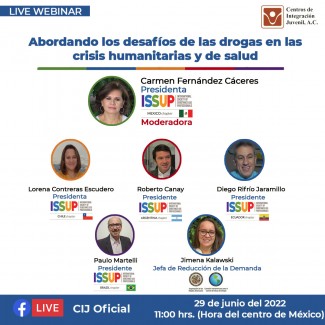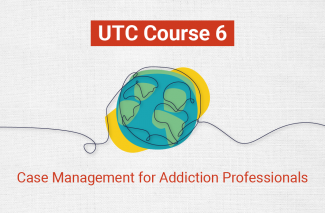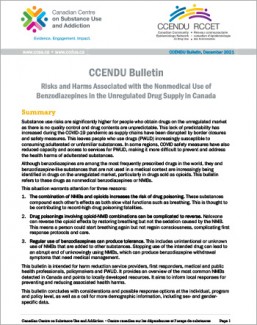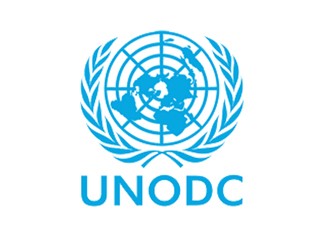Abordando los desafíos de las drogas en las crisis humanitarias y de salud

ISSUP Mexico held a discussion on Wednesday, June 29 at 11:00 a.m. Mexico City time, in commemoration of the International Day to Combat Drug Abuse and Illicit Trafficking.
June 29, 2022 11:00 am - 12:30 pm (Mexico time)
Moderator:
Dr...









